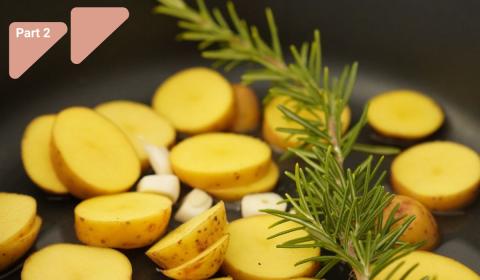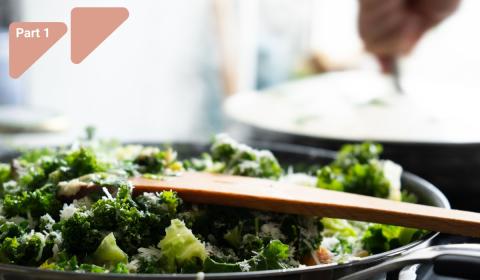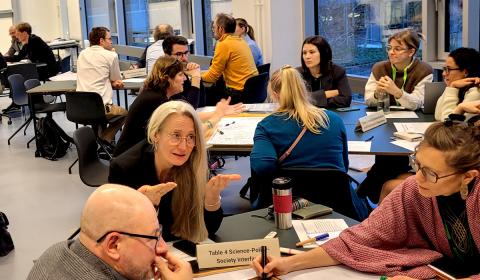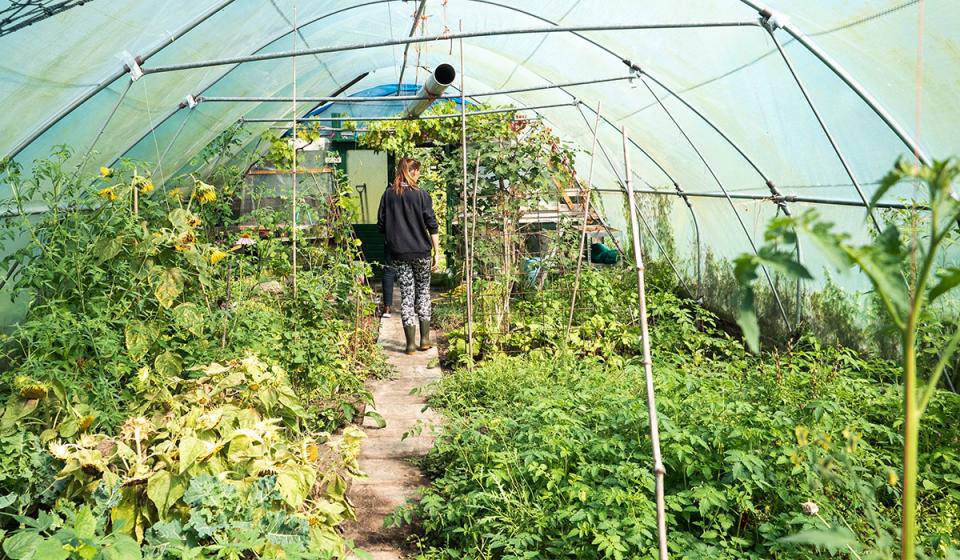
Image source: Photo by Frank Holleman on Unsplash
The living lab in Alto Minho focuses on public school canteens, whose purpose is to promote the transition to healthier and more sustainable food consumption and production habits. Aiming to have a clearer picture of the approach undertaken in Alto Minho’s schools on food-related topics, CIM Alto Minho and IPVC carried out a baseline diagnosis targeting both Alto Minho municipalities and their school groups.
Despite not having statistical relevance, this diagnosis allowed to: (1) identify projects which were implemented by or in Alto Minho’s schools, both before and during 2022/2023, (2) have a better idea of the established partnerships, (3) determine whether the foreseen strategies are aligned with the FEAST project and, if so, (4) in what ways and to what extent the implemented approaches overlap or complement each other.
The preliminary results were presented during the Alto Minho education committee meeting, held on June 13th, 2023.
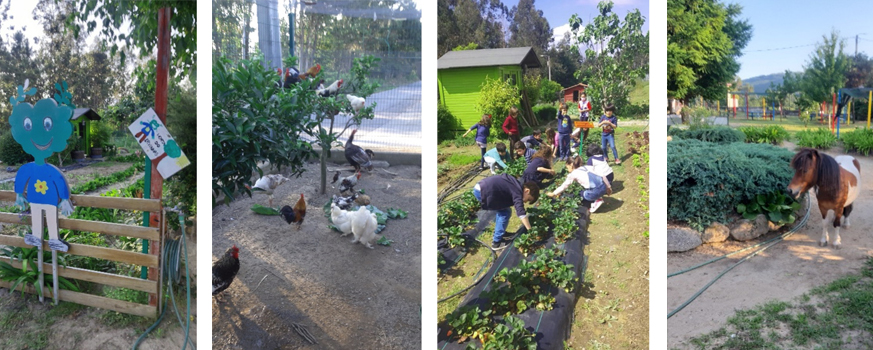
Image source: Sandra Estevéns, www.cim-altominho.pt
Centro Educativo da Facha transcends and inspires others, both inside and outside the school’s borders.
Centro Educativo da Facha is one of Alto Minho’s lighthouse schools in terms of resource efficiency, especially when it comes to food, waste, and water management.
On June 13th, 2023, it welcomed a best practice exchange visit targeting all members of the Alto Minho education committee. All those present were invited to taste a “school cooked” treat, prepared by one of the school’s staff using locally grown products. Later they had the opportunity to visit this schools’ organic farm where most of the used ingredients were grown.
Primary school students, supported by teachers and school staff, are responsible to take care of the organic farm, from feeding and caring for the animals (chickens, geese, ducks, turtles, ponies) to watering and harvesting plants, vegetables, and aromatic herbs and fertilizing the soil (using compost produced locally from biowaste,from the greenhouse, the garden, and the meal leftovers). The locally produced food is then integrated into the meals served in this school’s canteen.
From aromatic plants and herbs to carrots, cabbages, broccoli, and eggs, amongst others, there is plenty of variety to choose from, inspiring all six senses and boosting the cooks’ creativity.
In this primary school, there are plenty of activities to keep the children engaged in healthy and sustainable food habits – from food production to consumption to composting.
It is truly an inspiring example not only in terms of a hands-on full cycle approach but also on citizenship, sustainability, and circularity.
Centro Educativo da Facha has been an ECO-ESCOLA since 2010.
